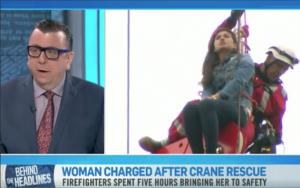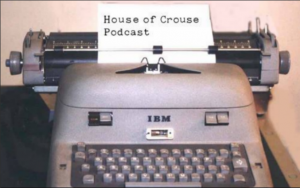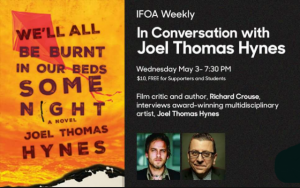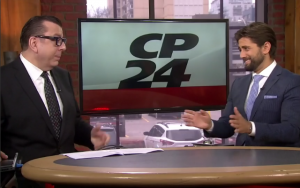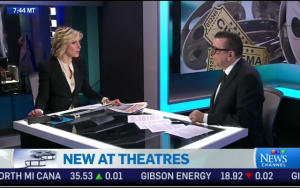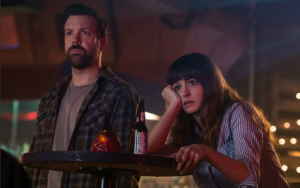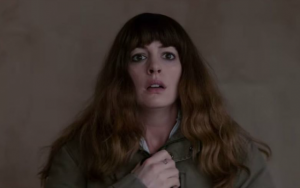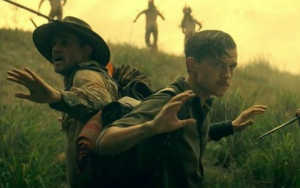“I understand some people are angry at the silly elements of the film,” says Colossal director Nacho Vigalondo, “but I’m a comic book guy and those are for me a way to re-enact the golden age of comic books on screen. I’m OK with superhero films not being afraid to be silly sometimes.”
His film may have the year’s strangest premise. He takes a basic rom com format—woman in trouble returns to hometown and strikes up a friendship with a former schoolmate—and turns it upside down. And inside out. And flips it on its head. He simultaneously reinvents and destroys the form in a movie that might be best referred to as a rom mon.
“Colossal is an original idea,” he says, “and you have to be careful with original ideas. A movie doesn’t make it on originality alone, you need something else.
“If you were writing this film as a romantic comedy and you are in the third act of the movie and suddenly you have opposing monsters in it? That is impossible. You have to do it the other way. I started with a silly and dark premise of this woman affecting the monsters on the other side of the world but it didn’t become a real film until I found the characters.”
Anne Hathaway stars as Gloria, an unemployed Manhattanite who fills her days—and most nights—with booze. As her life falls apart she returns to her small hometown a broken, drunken wreck. On home turf she reconnects with Oscar, played by Jason Sudeikis, a childhood friend, now owner of the local bar and possible love interest. So far it sounds like the set up for an unconventional rom com.
She takes a job at the tavern, earns some spending cash and access to after hours booze. Then things take a weird turn.
One afternoon she wakes up with the forty-ounce flu to the news that a giant monster has attacked Seoul, South Korea. It soon becomes clear to Gloria that she is somehow related to the mysterious attacks. It sounds outrageous, like the ramblings of a drunken sot, but when she takes Oscar to the sandbox in the local playground, the monster suddenly appears on the other side of the earth, mimicking her every move. When her actions cause havoc in Seoul she is forced to confront the monster within, her addiction.
Colossal is the kind of script most Rom Com Queens would toss in the trash by page 11. Hathaway, however, throws herself at it, relishing the off kilter and dowdy character. This may be a monster movie, but the real monster is her alcoholism not the foot stomping Kaiju.
“When Anne Hathaway said she wanted to play this role that was probably the biggest turning point in my whole career. If I had a list actors in mind I would have been the crazy guy on the block. Let me put it to you this way. Let’s fanaticize, if this movie becomes an Oscar winner for Best Picture, that would be a lesser jump than these actors wanting to be in this film.”
Colossal isn’t exactly a monster movie or a Jennifer Aniston-esque rom com. It is something else, something original and that is its beauty. It’s a reinvention, for both Gloria and its genres.
